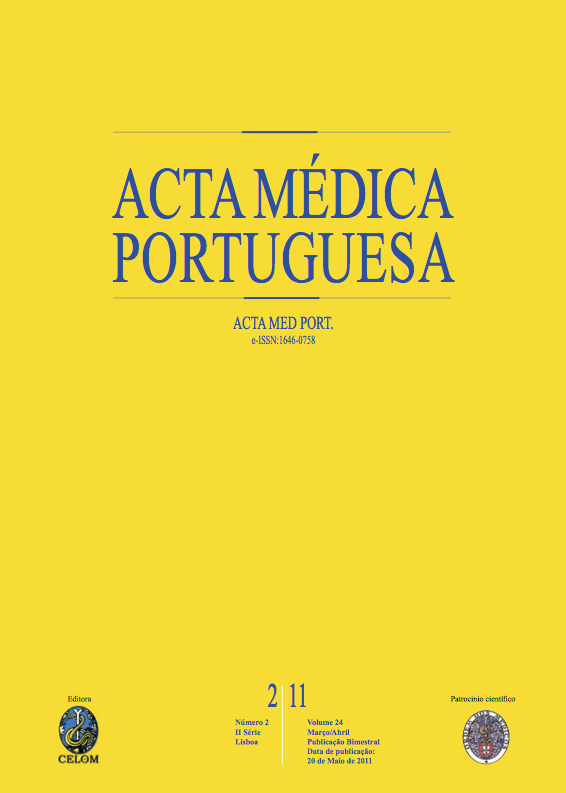Procedimentos forenses no âmbito da recolha de informação, exame físico e colheita de vestígios em crianças e jovens vítimas de abuso físico e/ou sexual.
DOI:
https://doi.org/10.20344/amp.1613Resumo
The public nature of child abuse crime (domestic violence, maltreatment and sexual crimes) implies the opening of a criminal enquiry as soon as facts likely to be considered as such are known. Professionals who suspect of these cases are considered mandatory reporters as is the case of health care professionals. The work with abused children and youth involves several courses of action between institutions, namely as to the starting procedures to follow in case triage, reporting of suspicion, diagnosis and preservation of evidence for penal purposes, as well as to the protection of the victim(s), all of which still lack a clear definition in Portugal. Several professionals often take part simultaneously in these early procedures and it is crucial that their own personal intervention be articulated with one another's. With the aim of promoting that adequate articulation between the professionals and the acting services, technical orientations to be followed have to be established, namely as far as the articulation between the medicolegal services and the health care services are concerned. These orientations should aim at: ruling the reporting of the occurrence in good time; guarantee an appropriate collection of evidence; guarantee good medical procedures in medical exams and evidence collection; avoid repetition of exams of the victims, preventing secondary victimisation and cross-contamination of child report. Based on the internationally accepted rules for the matter and taking into consideration the Portuguese reality, namely in legal terms, the authors made a proposition concerning the procedures for the intervention in such cases that are herewith presented and were approved as General Recommendations for the Examination in Cases of Suspicion of Domestic Violence, Maltreatment or Sexual Crime Against Children by the National Institute of Legal Medicine, in January 2010. These were later confirmed by the Specialty College of Legal Medicine of the Medical Board Association.Downloads
Downloads
Como Citar
Edição
Secção
Licença
Todos os artigos publicados na AMP são de acesso aberto e cumprem os requisitos das agências de financiamento ou instituições académicas. Relativamente à utilização por terceiros a AMP rege-se pelos termos da licença Creative Commons ‘Atribuição – Uso Não-Comercial – (CC-BY-NC)’.
É da responsabilidade do autor obter permissão para reproduzir figuras, tabelas, etc., de outras publicações. Após a aceitação de um artigo, os autores serão convidados a preencher uma “Declaração de Responsabilidade Autoral e Partilha de Direitos de Autor “(http://www.actamedicaportuguesa.com/info/AMP-NormasPublicacao.pdf) e a “Declaração de Potenciais Conflitos de Interesse” (http://www.icmje.org/conflicts-of-interest) do ICMJE. Será enviado um e-mail ao autor correspondente, confirmando a receção do manuscrito.
Após a publicação, os autores ficam autorizados a disponibilizar os seus artigos em repositórios das suas instituições de origem, desde que mencionem sempre onde foram publicados e de acordo com a licença Creative Commons









